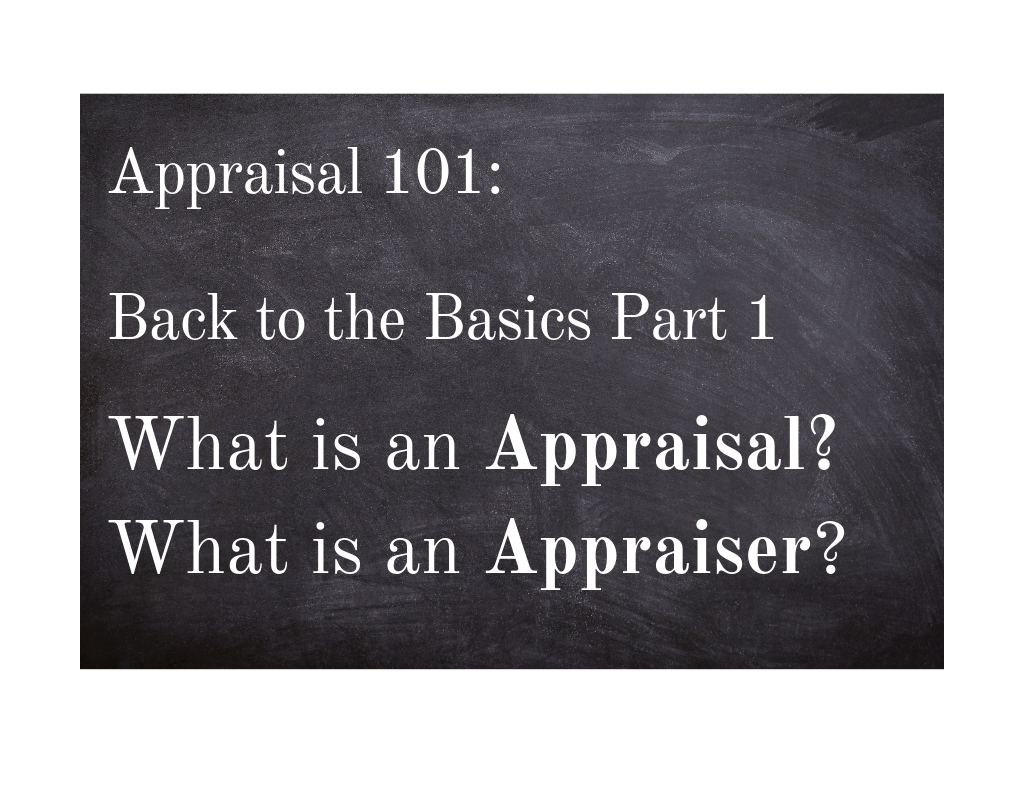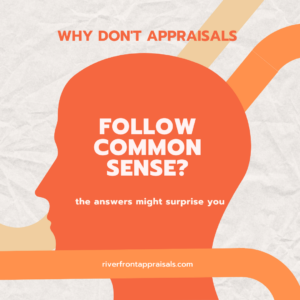
Property Taxes Just Went Up? We’ve Got You Covered!
It’s reassessment season for most folks in our area. Homeowners

School is in session.
In this blog post – which is part one of a three-part series called ‘Appraisal 101’ – we will be answering two very important and fundamental questions: What is a real estate appraisal?; and what is a real estate appraiser?
Question 1: What is a real estate appraisal?
If you Google ‘what is a real estate appraisal?’, you’ll get a bunch of information. Some good – some not so good. Some information you’ll find is really helpful, while other information is flat out wrong. So let’s begin to answer this question by discussing what a real estate appraisal is not.
So then, what is an appraisal?
Let’s start out with the boring, official dictionary definition.
The Dictionary of Real Estate Appraisal, 6th ed defines appraisal as
“The act or process of developing an opinion of value; an opinion of value.”
Boiled down, an appraisal is simply an opinion of value. But before you rush into things and say, “Well, if it’s just an opinion, then who cares? Everyone has an opinion, right?” Absolutely! Everyone is entitled to their own opinion. However, the appraiser must complete an appraisal (opinion of value) that is supported. We don’t have the luxury of simply pulling a number out of thin air and saying “that’s my opinion, so therefore, it’s an appraisal!” Appraisers are bound by our standards of professional practice that state we must provide credible results to our client. Those results must be supported by the market, and not just our own opinions and/or feelings.
[bctt tweet=”What is a real estate appraisal?” username=”RiverfrontApp1″]
So that leads us to the second part of our post.
Question 2: What is an appraiser?
Simply put, an appraiser is someone who provides appraisal services (i.e. an opinion of value). That’s it! And you thought it was going to be so much more than that, didn’t you?!
As the Appraisal Institute points out, the role of an appraiser is to provide objective, impartial, and unbiased opinions about the value of real property. We’ll go over those three qualities in a future post. Appraisers also must be licensed or certified to perform appraisal assignments. That means that a Realtor, lender, inspector, or anyone else for that matter – who is not also a licensed or certified appraiser – cannot say that they can give you an ‘appraisal’ of your home.
In addition to the three qualities listed above, the appraiser must be someone who is competent, and who has the requisite knowledge & experience needed to provide a credible, supportable opinion of value.
[bctt tweet=”What is an appraiser?” username=”RiverfrontApp1″]
We’re getting back to the basics, here. After reading this post, you should be familiar with the fundamental concepts of appraisal and appraiser. In future posts, we’ll discuss the concept of market value, and why you need an appraisal.
Helping homeowners navigate the appraisal process,
Ryan Bays, SRA, AI-RRS
Riverfront Appraisals, LLC

It’s reassessment season for most folks in our area. Homeowners

I feel like we all need a laugh. How about

So this may be a slight break from the norm,
Riverfront Appraisals has been providing comprehensive valuations of residential properties to Western Kentucky and Southwestern Indiana since 2008.